From first imagining it to opening day, getting a coffee shop up and running is a grand adventure, with many arduous steps along the way. On the road from dream to reality, every step takes a long time to complete and a series of questions must be addressed to stay on course. In order for a coffee shop to be sustainable in a business environment where competitors open and close almost every day, it is crucial to define the parameters of the business before opening, and then sustaining them throughout ongoing operations.
Budgeting for your project
If you don’t complete this first step every other step will be impossible to anticipate and plan for! Opening a coffee shop obviously requires investing in equipment, supplies, training, and more. To bring this dream into reality, you will have to carefully study your budget before considering all the possibilities.
First of all, you need to budget your business's starting expenses. This will help you make a number of choices.
Use our financing calculator to estimate your payments.
Choosing a concept and a location
Coffee shop competition is fierce; new shops open constantly while others close at almost the same rate. So, when you are thinking of opening up a café, it is absolutely crucial to come up with a concept that is unique and original, one that will set you apart and set you up for as much success as possible. Most people do not enjoy the feeling of déjà vu, and concepts that are too similar to others usually get the harshest of criticism, which is why it is important to think up a truly innovative concept. To do so, you will need to thoroughly research the market you wish to conquer, and get to know your competition if you want to stand out.
Once you decide on a concept, you need to choose the right location. You may need to keep in mind certain spatial necessities, depending on the type of concept you want to open. The wrong location could spell disaster! Obviously, the first consideration is your target customers, so it is vitally important to get a proper feel for the neighbourhood you are looking at, and making sure it can match the goals and ambitions of your coffee shop’s concept. Do this well before making any commitment to a building in an area.
Additionally, it is very important to be fully aware of the various laws and regulations pertaining to the type of business you wish to open. For example, a coffee shop that also has a roastery will almost always have to satisfy a number of different requirements than just a coffee shop. It's always better to be safe than sorry, so be sure to contact the city or neighbourhood authorities to know whether your particular project is feasible.
Finally, you should also think about how to design the inside of your coffee shop to better accommodate customers and staff alike, so that everyone feels comfortable.
“You must properly combine design and functionality.”
- Laurent Cugno
Finding the ideal roaster (and coffee!)
When deciding to open a coffee shop, you will inevitably have to delicately contemplate the products and services you wish to offer. First and foremost, you should consider what roaster(s) you want as a partner(s) and thereby the type(s) of coffee you will serve. The coffee you choose will inescapably have an impact on your customers. It is also one of the most significant expenses to account for—after the property and equipment investment, taxes, and paying staff—when opening and managing a coffee shop. So, make sure to carefully select your roaster(s) or micro-roaster(s). You should consider the following when choosing the right company to do business with:
The company's values (Are they the same as ours? What is the roaster's mission?)
The environmental aspect (Is the company local? If not, why choose them?)
The service (Is the company committed to its customers? Does it provide training, advice, and aftercare? Are they a turnkey solution? Are they an efficient delivery service?)
The range of products they offer (Does it offer professional equipment at competitive prices? Accessories? Various coffee varieties and roasts?)
The company's reputation (What are its pre-existing relations to competitors and to customers? What is their reputation when it comes to expertise in the field?)
Coffee bean provenance
Roast type (What roast do you prefer?)
And more…
Deciding the menu
Once these initial considerations have been addressed, another question will need to be answered: do you only want to offer coffee-based beverages? Generally, the answer is no. Coffee shops that only sell coffee are few and far between. As a result, creating a "pairing" menu is often a great idea, this can include: muffins, scones, biscotti, cookies, bagels, croissants, and other baked goods and pastry products. These are always welcome on coffee shop menus and customer’s plates.
It is also important to consider the proportion of customers that may not drink coffee whatsoever when devising a coffee shop menu. Choosing a number of non-coffee options, whether they be hot (tea, hot chocolate) or cold beverages (lemonade, smoothies, kombucha), is essential if you want them to feel welcome and to get what they want.

If ever you wish to serve alcohol, you're going to have to get a liquor licence! This licence can sometimes take quite a while to obtain (up to several months), so it's better to get a head start, or at least begin the process as soon as you know there will be alcoholic beverages on the menu.
Choosing a supplier involves asking the same kinds of questions as when selecting a roastery: do they make their own products? What is their reputation? What sort of products do they offer? What ingredients do they use? Where do they source their products from? What are their relations with other clients and customers? And, perhaps most importantly, what sort of products will complement your coffee shop menu?
Collaborating with a company that promotes locally sourced and locally made products will almost definitely provide added value.
Selecting efficient and quality equipment
As for selecting the equipment you use to make the coffee items on your menu, the word to keep in mind is ‘quality’. The principal idea when opening a new coffee shop is to serve as many customers as possible! And in order to do so, you need quality equipment that provides consistent performance, especially at the busiest of times. Grinders and espresso machines should not only be effective, they must also be able to produce coffee of impeccable quality and outstanding taste, again and again. If you don't have the right equipment and don't know how to use it, you'll never be able to extract that ‘quality’ coffee taste, even with the world's best beans in your grinder!

Choosing the right equipment for your coffee shop
It is essential to get the right equipment relative to volume.
As we've said before, the quality of your equipment is crucial for efficiency. You should consider the following in order to know what equipment to invest in:
your budget;
your available space (ergonomics);
the level of experience you and your team have with espresso machines.
Aside from these considerations, there are several other conditions that should inform your decision. You must predict the volume of traffic in your coffee shop to the best of your abilities. These kinds of estimates will allow you to choose the right equipment. It is always better to ask a professional for advice in order to choose the best equipment for your business, and to start your project on the right foot.
Beyond just coffee-specific equipment, you'll also need a refrigeration system, storage space, and equipment to make the various other products on offer, as well as things like your point-of-sale software, your payment systems, and security systems. This may seem like a lot, but it's really the minimum requirements for equipment.
Adopting an environmentally responsible approach
In an era where most consumers are increasingly conscious about the environment, having a responsible approach in this respect has become essential, even if it presents considerable challenges in the food and coffee industry.
While some choices may seem easy, others will require more commitment. From the choice of coffee and food items, to mugs and cups, the kinds of milk offered, to transportation and delivery methods, there are many ways in which to implement an eco-friendly approach.
Hiring staff
Another common challenge for a coffee shop is hiring the right employees. Searching for new staff can require a lot of patience. Applications often vary wildly! Of course, it's always important to strike the right balance within your team.
Once the ideal employees have been hired, you need to know how to retain them by being adaptable and showing your appreciation. This includes giving them responsibilities and involving them as much as possible. People always want to stay longer in a stimulating environment, where they feel useful, and like they can contribute their own personal touch!
Training staff
Training and refreshers are significant aspects that contribute to the integration and participation of team members. Baristas need to know the basics of espresso and of latte art, and they need to be able to inform customers about the coffee they are making. As such, having experienced baristas in your coffee shop obviously has lots of advantages.
Finally opening your dream coffee shop
Several months have gone by since you decided to open a coffee shop, and since then you have kicked started the process to get there. Ideally – maybe even necessarily – if you want to have a customer base once your shop opens, you'll have gotten people talking about your coffee shop within your network and community. You need to be seen in order for people to find you and for them to want to come see you! That's why it's so important to use various means to entice coffee enthusiasts. A social media presence these days is absolutely essential.
Facebook and Instagram are the preferred platforms to advertise, to post details, and to pique your follower’s curiosity. This can be achieved through posting images of your shop, its construction process, your menu development, your staff as you hire them, the partners you’re going to work with, etc., depending on your coffee shop's specialty and what sets it apart.
Retaining customers
Once you've had your grand opening, you need to retain your customers to stay afloat. After all, it is ultimately up to them whether you will succeed...or fail! You want customers to come back, but how do you make sure they do?
Although there's no magic recipe, and each coffee shop attracts certain customers because of their atmosphere, or because of their products, there are a few things you can do that will keep your customers coming back. If you've properly planned every step of your project, without neglecting any of the steps mentioned above, then you already have a few advantages: you have a strategic location, you have a good selection of services and products, you provide quality coffee and products, you have a loyalty card, you have pleasant and properly trained staff, your customers are satisfied and grateful, and they begin to spread the word; at that point you should be good to go! Once everyone is happy and you can feel it in the coffee shop, that's most of the work done.
Of course, it's important to be open to criticism and change if ever the team or customers highlight issues and ask for improvements. Whether positive or negative, any criticism is always constructive when it's about coffee! The key to success is to be open and to make sure to offer impeccably tailored service.
Turning on the machine and making it work
Here we are. Once the opening stages have passed and early enthusiasm has subsided, after every step has been implemented, all that's left to do is keep it going. If a given step has been underestimated or skipped along the way, now is when the problems will begin to be seen. These often end up having to do with a coffee shops operational costs (maintenance, servicing, overhead, etc.), and these issues are always going to be more difficult to deal with if they haven't been anticipated for from the get-go. Sadly, a lot of coffee shops close after a few months because their overhead and operating costs exceed revenue. The dastardliest issues are the ones you haven't prepared for. Again, it is important to reiterate, that seeking out professional advice can make all the difference.
To succeed, you will need to be prepared and to project yourself into the future. Opening a coffee shop is an undertaking that requires commitment and patience. Rome was not built in a day and, in much the same way, opening a coffee shop also takes time. However, by taking all these steps into account, you will have a much better chance of finally living out your dream and contributing to the happiness of coffee enthusiasts by doing so.
Although there's no magic recipe, and each coffee shop attracts certain customers because of their atmosphere, or because of their products, there are a few things you can do that will keep your customers coming back. If you've properly planned every step of your project, without neglecting any of the steps mentioned above, then you already have an a few advantage: you have a strategic location, you have a good selection of services and products, you provide quality coffee and products, you have a loyalty card, you have pleasant and properly trained staff, your customers are satisfied and grateful, and they begin to spread the word; at that point you should be good to go! Once everyone is happy and you can feel it in the coffee shop, that's most of the work done.
Of course, it's important to be open to criticism and change if ever the team or customers highlight issues and ask for improvements. Whether positive or negative, any criticism is always constructive when it's about coffee! The key to success is to be open and to make sure to offer impeccably tailored service.

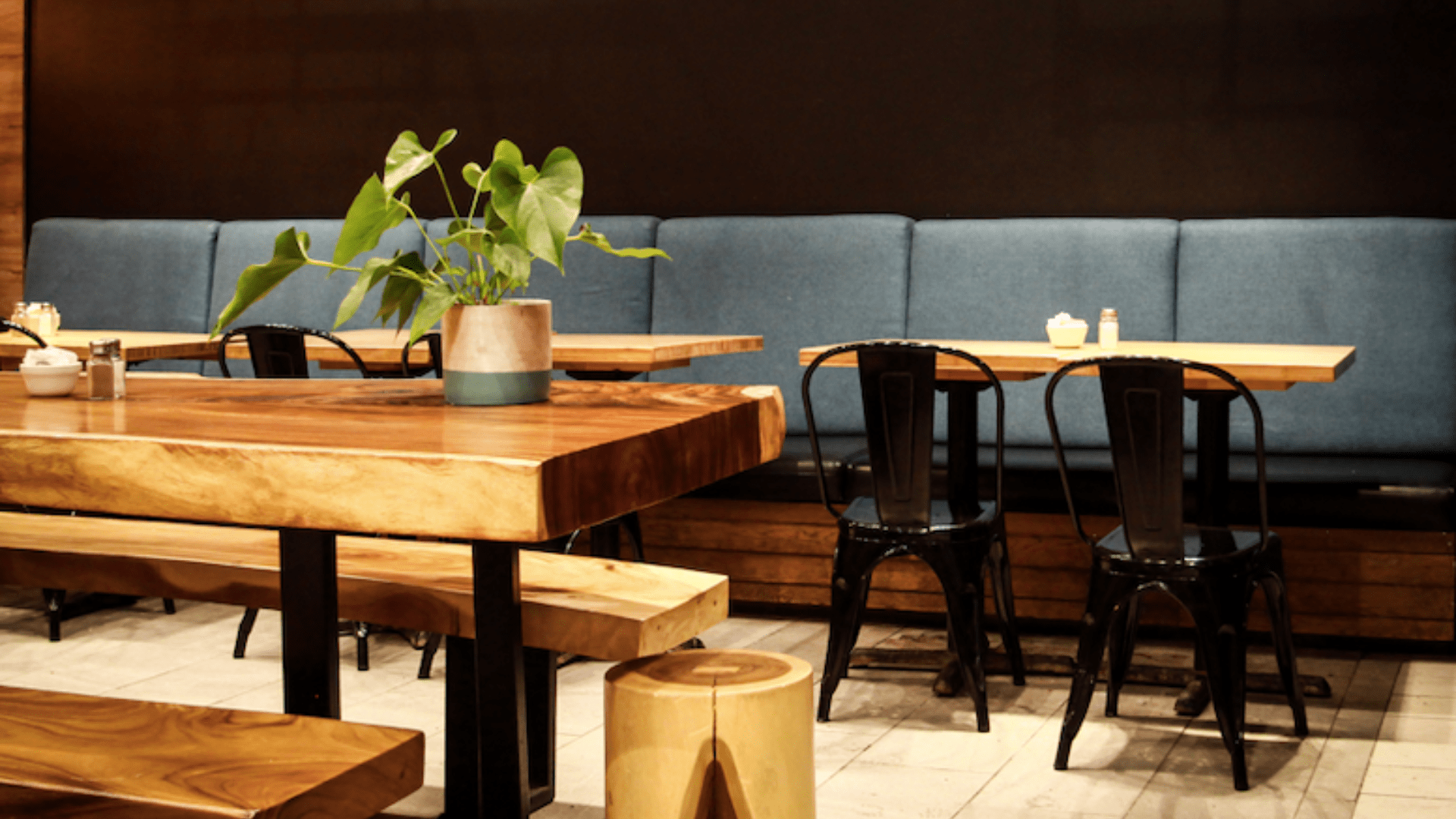
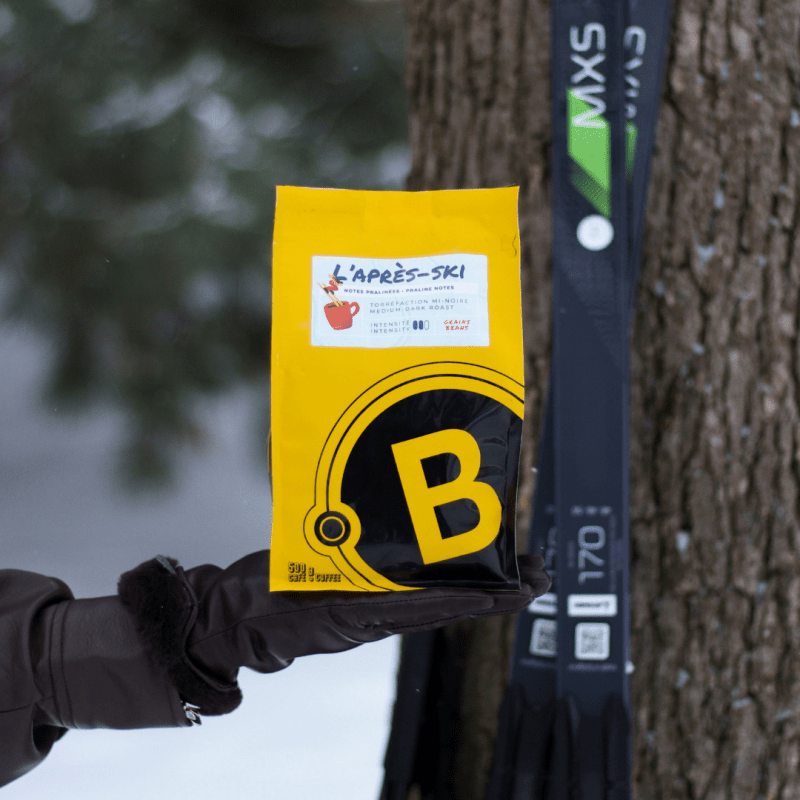



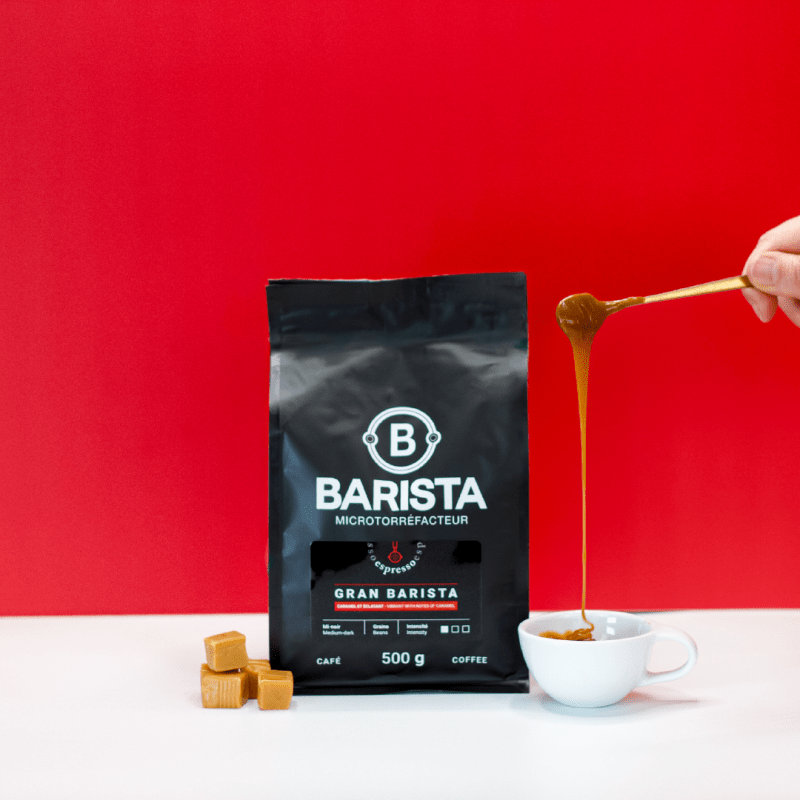
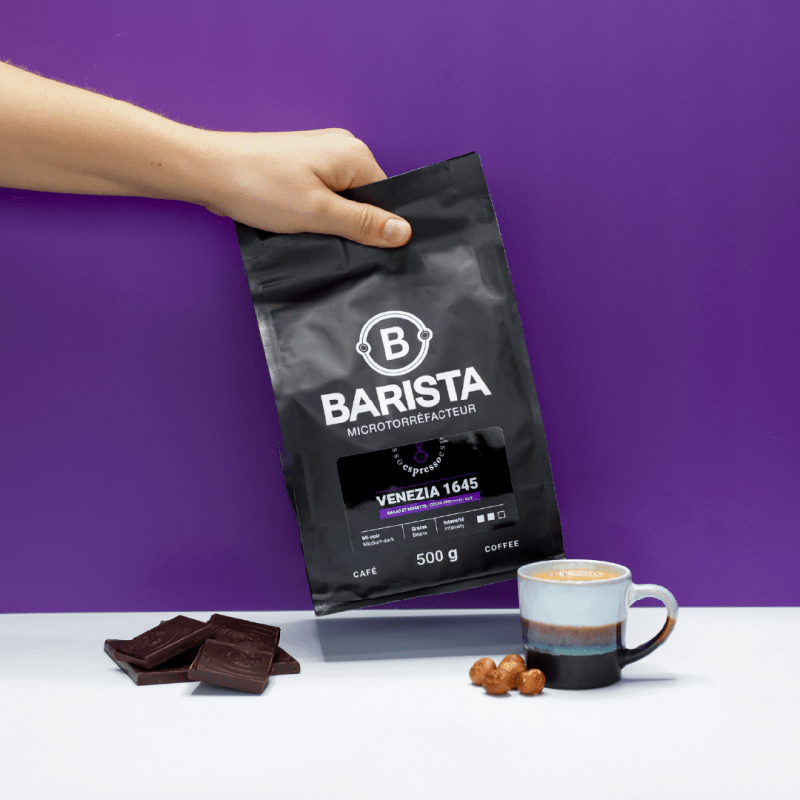
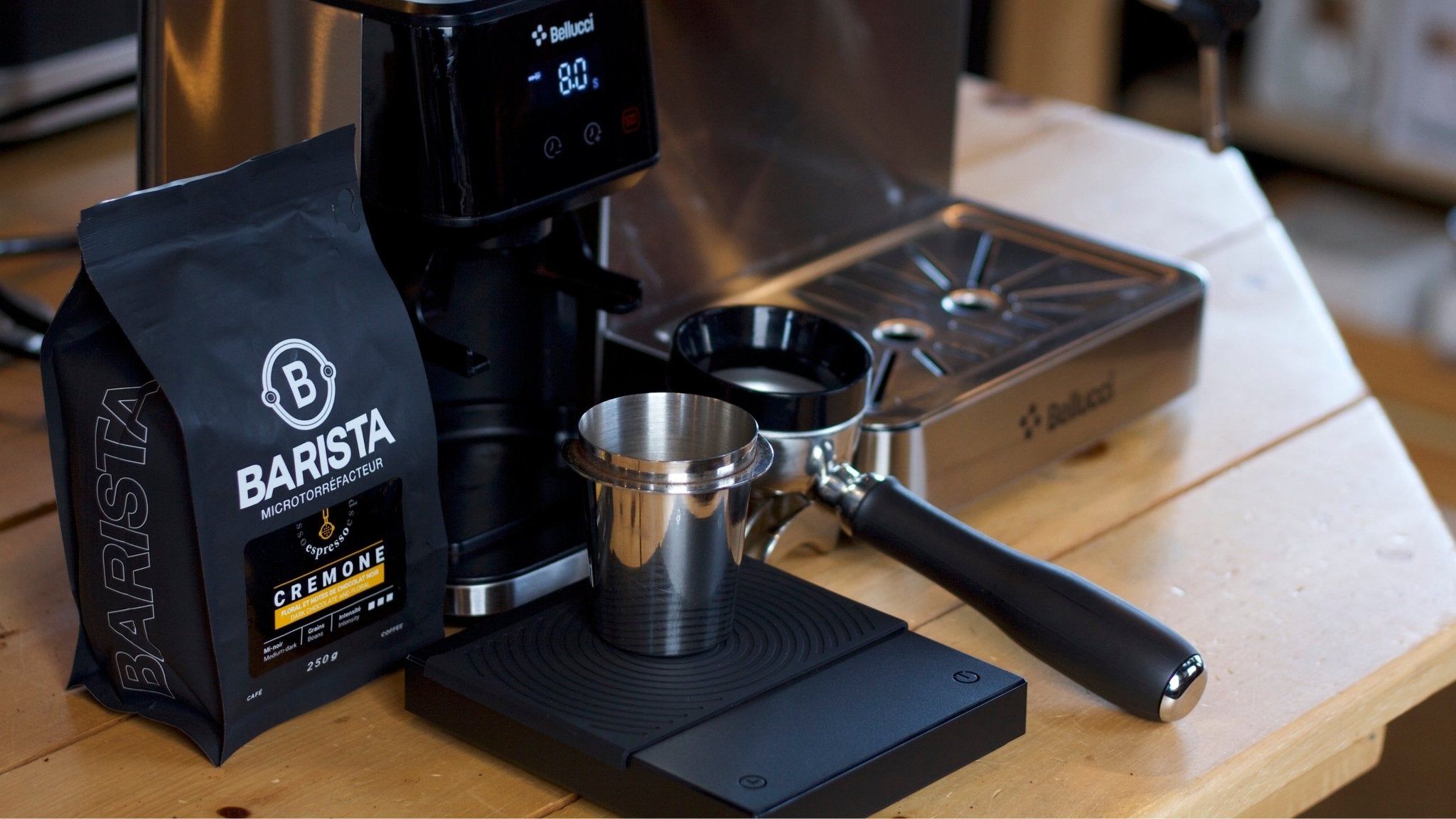

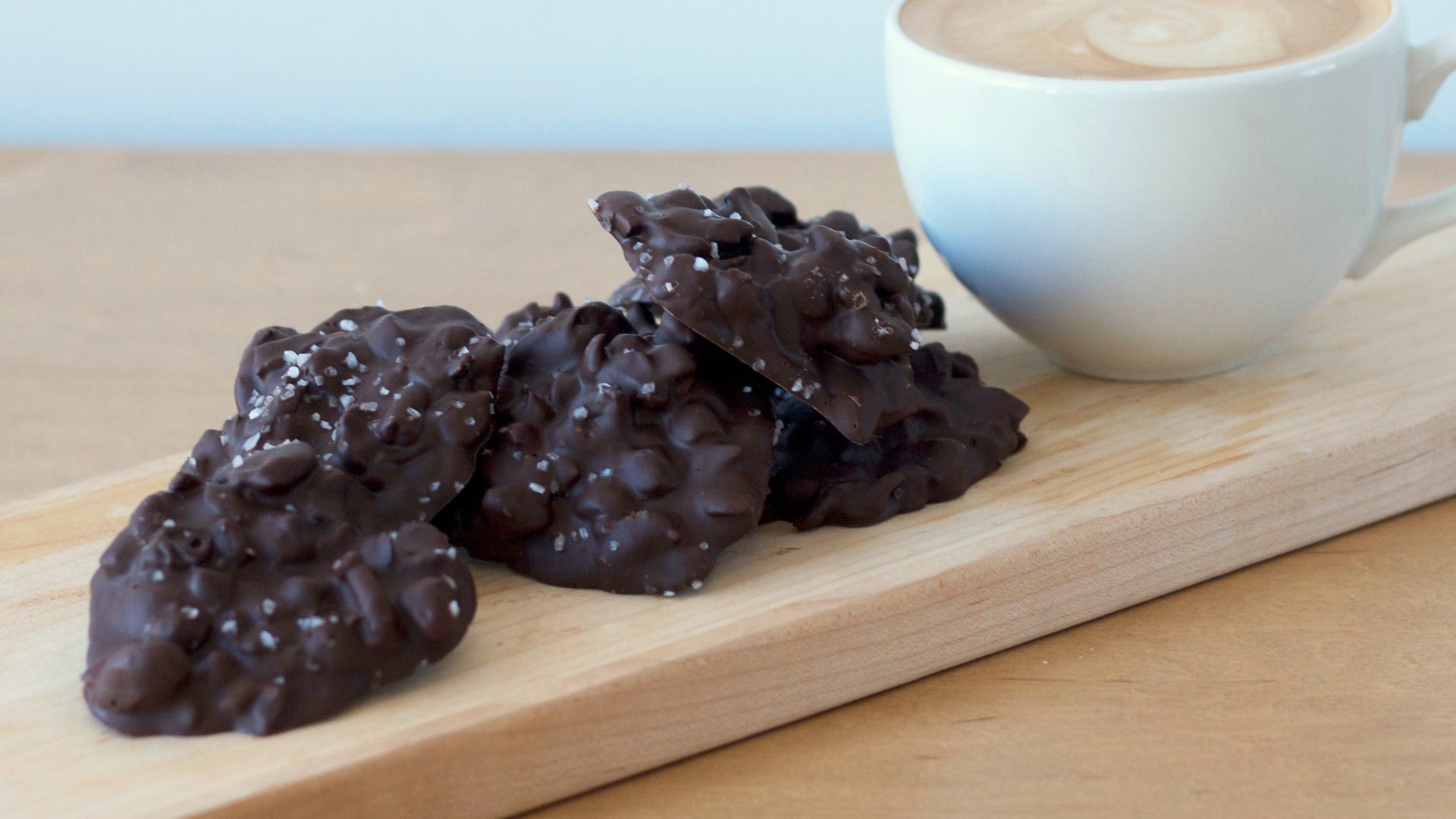
Share:
The history of coffee, from the first to the third wave
Recipe: Après-Ski 2023 Cocktail with Maximiliano Vallée Valletta